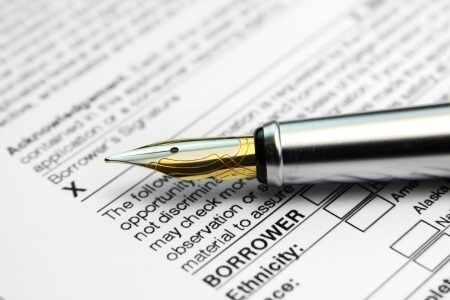Closing Costs: Understanding What It Costs to Close on a Home and What You Can Expect to Pay
 If you’re in the process of buying a new home, you’ve likely heard the term “closing costs” in regards to the many different fees and taxes that you’ll be required to pay during the purchase process.
If you’re in the process of buying a new home, you’ve likely heard the term “closing costs” in regards to the many different fees and taxes that you’ll be required to pay during the purchase process.
In this post we’ll look at a number of these closing costs and what you will be expected to pay when you buy that next dream home.
Taking out a Mortgage? There Will Be Fees Attached
If you’re taking out a mortgage to finance the cost of buying your home you’ll end up incurring a variety of fees. Nearly all lenders will charge a mortgage application fee, which covers the cost of processing your application and all of the necessary paperwork.
You’ll likely have to pay for a professional appraisal of the home as well, as the lender will want to ensure that they aren’t lending you more than the house and property are actually worth.
Inspection And Insurance Costs Will Add Up
If you’re buying a pre-owned home you’ll need to pay for a home inspection to gain an understanding of the home’s condition and if you’ll need to make any repairs in the near future. You’ll also need to purchase homeowner’s insurance on the property to protect yourself in the event that something does go wrong with the home.
If you put less than 20 percent down on the cost of the home, your mortgage lender may also require that you purchase private mortgage insurance; this will vary depending on which state or province you are buying in.
Don’t Forget About Escrow Fees and Taxes
As with any major financial transaction you’ll need to satisfy the tax man by paying various taxes on your purchase. These will vary depending on where you are buying your home, but might include sales taxes, property taxes, transfer taxes, recording fees, title transfer fees and more.
If you used a third-party escrow service to manage these fees or to hold your deposit during the closing process you’ll also need to pay escrow fees prior to signing the final paperwork.
 Buying a home is one of the most exciting times that an individual will undertake in life. However, a property purchase is not without its challenges, and these can cause frustration. In this article we’ll share five potential setbacks that home buyers will need to understand and come to terms with to make a successful purchase.
Buying a home is one of the most exciting times that an individual will undertake in life. However, a property purchase is not without its challenges, and these can cause frustration. In this article we’ll share five potential setbacks that home buyers will need to understand and come to terms with to make a successful purchase. There are many reasons why a mortgage loan could be declined. It doesn’t have to be the end of your real estate dreams. Here are a few things to consider if you’ve been turned down for a mortgage.
There are many reasons why a mortgage loan could be declined. It doesn’t have to be the end of your real estate dreams. Here are a few things to consider if you’ve been turned down for a mortgage.